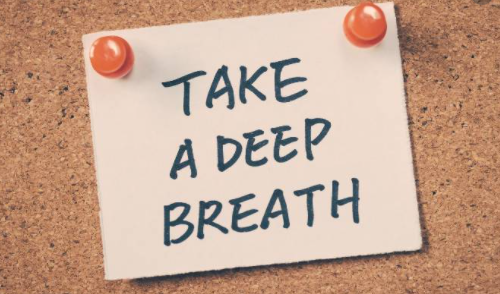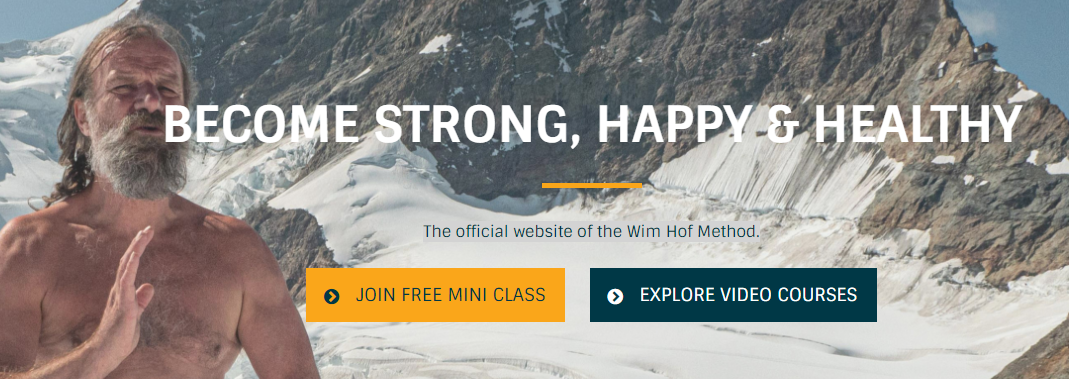“Oxygen revitalizes you, resets your mind, body and spirit and allows you to feel better.”
(…this is a continuation of my series “Beyond Meat,” in which I want to provide a multitude of ways you can make an immensely positive impact on your health that have nothing to do with what you eat. Though none are groundbreaking health tips, they work, and are backed by real science and clinical studies (one cannot rely on Google alone). So, consider this a gentle nudge to impart some of these tips into your routine)….
We have all been prisoners on planet BS during COVID and the stress is real. It has taken quite a physical and emotional toll. I have been dealing with insomnia in ways I never imagined (see my previous sleep post), as well as bouts of hysteria, depression, gratitude and elation, sometimes within the same hour!
But everything has its silver lining, and there are various benefits that have come from being locked down at home with my family. Aside from early morning hugs, family dinners and more than enough hide and seek, one benefit of having more time at home has been being able to slow down and learn how to manage my stress levels. I have been a fan of meditation for quite some time and I truly believe when I squeeze in a 10-15 minute sesh, the trajectory of my day changes for the better. However, in the past year, meditation has become a bit more elusive —- quieting my mind isn’t always possible, and I found that mediation alone hasn’t been enough to quell my nerves sufficiently. To that end, I have done quite a bit of experimentation on myself. In terms of wellness, I got an Oura ring to measure my movement, sleep and “readiness,” and also a CGM (continuous glucose monitor) to make sure my blood sugar stayed stable —-more on these in future posts.
Particularly, I also learned about HRV (heart rate variability), which has become all the rage in the wellness world. According to Harvard Health , “HRV is simply a measure of the variation in time between each heartbeat. This variation is controlled by a primitive part of the nervous system called the autonomic nervous system (ANS). It works regardless of our desire and regulates, among other things, our heart rate, blood pressure, breathing, and digestion.”
Basically, our brains are constantly processing information and signaling the rest of the body either to stimulate or to relax different functions. It responds not only to a poor night of sleep, or a sour interaction with your spouse, but also to the exciting news that you got a new job, or to that delicious healthy meal you had for lunch. Our body handles all kinds of stimuli and life goes on. However, if we have persistent instigators such as stress, poor sleep, unhealthy diets, lack of exercise etc., this balance may be disrupted, and our fight-or-flight response can shift into overdrive. HRV is an interesting and noninvasive way to identify these imbalances. If a person’s system is in more of a fight-or-flight mode, the variation between subsequent heartbeats is low. If one is in a more relaxed state, the variation between beats is high. Over the past few decades, research has shown a relationship between low HRV and worsening depression or anxiety, increased risk of death and cardiovascular disease.
To that end, I started tracking my own HRV as well, using an Oura ring. I noticed my HRV was questionably low, especially given my attention to health and wellness. After much research, I discovered there are ways to improve HRV that are much simpler than you might guess. Think: deep breathing. Sounds super easy, right? Inhale. Exhale. You know how to do that. Or at least, you sort of do. (I'll trust you haven't passed out yet.) Scientifically speaking, most of us aren't taking the deep, rejuvenating breaths we're capable of, and that has major ramifications for our stress levels and subsequently, our HRV. Sadly, many of us breathe shallowly all day long or forget to breathe(!) and our bodies don't get enough oxygen, so we wind up with anxiety, cold hands and feet or worse, cardiovascular disease.
As basic as it sounds, "learning" how to breathe deeply (also called diaphramatic breathing) was a daunting task for me. One more thing To Do. So, I got a wearable tracker called a Lief that promised to “train” me to breathe more deeply. Basically, the Lief attaches to your chest near your heart and buzzes when your HRV goes too low. The buzzing prompts you to do deep breathing exercises until your HRV levels rise back up. I was skeptical at first, but I must admit the thing is wild. My HRV improved massively from low 30’s to high 60’s just by taking a few minutes of deep breaths a few times a day.
You don’t need a Lief. I’m just a wellness gadget nerd. You can learn to breathe deeply on your own by setting an alarm a few times a day to remind yourself to take deep breaths. The goal is eventually you will automatically take more deep breaths consistently throughout the day and especially when stress starts creeping in. And the technique is familiar - most of us just don't do it enough. First, take a normal breath. Then try a deep breath: Breathe in slowly through your nose, allowing your lower belly to rise as you fill your lungs (count of 4-6). Let your abdomen expand fully. Now breathe out slowly through your mouth (or your nose, if that feels more natural) as your stomach flattens (count of 6-8). Your core muscles help move the diaphragm, so they are also involved in this breathing technique. That’s one reason why core exercises are emphasized in practices such as yoga, since they can help strengthen your diaphragm and allow you to fully breathe in and then to empty your lungs. There are various other breathing methods that can be beneficial. There are stimulating breaths, pranayama breathing and alternate nostril breathing, as well as many others. You can do a little experimenting yourself and find one that works for you, but the simple deep breathing works as well as any other method IMHO.
Main benefits of deep breathing:
1) Stress/Anxiety reduction and in some cases, reduced feelings of depression
2) increased HRV, which means resilience
3) Improved respiratory function and circulation (have cold hands and feet?)
4) Improved digestion
5) Better focus and concentration
6) Better athletic performance
7) Detoxification - tons of toxins are released during deep breathing
Now that I’m aware breathing is a thing, I have seen practices and methods pop up everywhere in the wellness space, dedicated to breathing alone (as opposed to combined into yogic practices). One gold standard guru is Wim Hof (he’s worth reading about even if you don’t care to learn to breathe). His breathing practices are lauded by millions of devoted followers and his practices are highly regarded by the most academic of wellness warriors.
Bottom line: Deep breathing is a simple mind-body technique that could help keep you calm, could be done anywhere, and requires no equipment, supplements or apps. Its a small piece of a larger puzzle that could help sooth frayed nerves and provide massive health benefits you might not have guessed. You don’t need a practice or a method or a wearable device. You just need to breathe. Who knew?!



